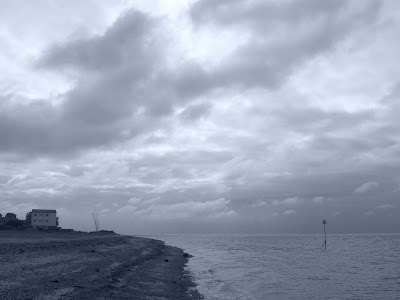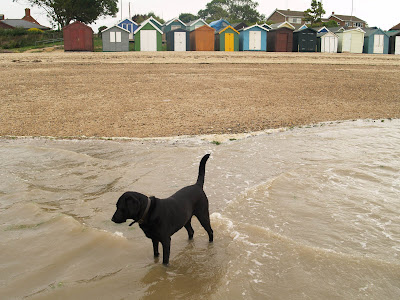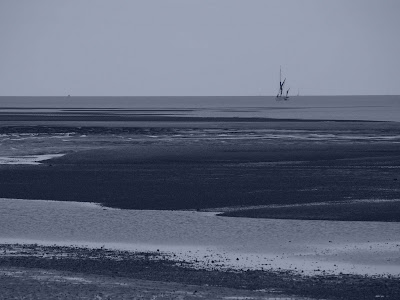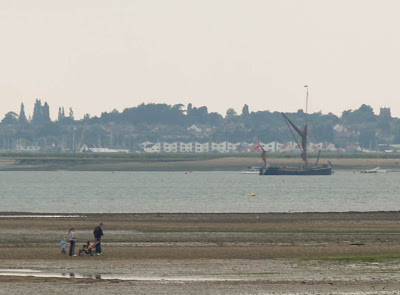Monthly Archives: July 2007
TBTM20070713
Synopsis of the book (Let us be human)
This is what I’ve sent off to publisher #2, and I shall gradually work my way through my list of possibles. If anyone out there is interested in publishing this, do let me know 
BOOK SYNOPSIS: Let us be human: Prophecy, Peak Oil, and the path for the faithful
The phrase ‘Peak Oil’ refers to the geological law that the flow of oil from an oilfield will start small, increase over time, reach a peak and then decline. This law applies to oilfields, oil producing regions and the world at large. For some one hundred and fifty years now the industrial economy of the West has expanded in tandem with an increasing supply of oil, and we have built an entire way of life upon the free and easy access to energy that oil (along with other hydrocarbons) has provided. The Peak in world oil production is either already present or imminent within the next few years – and it means that oil will progressively become less and less available; this, in turn, means that the way of life built upon oil will break down and collapse.
There have been many books published from a secular perspective describing this phenomenon and giving more or less pessimistic analyses of what we can expect. I believe that the problems we face are ultimately spiritual in nature – we have created a world in which our humanity is distorted and defaced, and we have lost our way as a society and a culture. I believe that Christian theology has a great deal to say to this situation and that only a theological analysis can adequately assess the problems that we are facing, and describe a healing way out. In my book I therefore:
– describe what Peak Oil is, and what the implications are for the future of our civilisation;
– link it in to the wider ecological notion of ‘limits to growth’, and the way in which our present ways of life will of necessity come to an end;
– provide three theological ‘tools’ that are essential for rightly understanding our predicament; these are: a) the notion of idolatry, the distortion of values that come from placing too much importance on anything other than God; b) the notion of God’s wrath, and how to rightly understand it, so that we can recognise it when we experience it; c) the notion of apocalypse, so that we can interpret the signs of the times rightly, and not be misled by secular eschatologies, which desire to destroy our world;
– apply those three tools to four areas of our life, indicating how a turning away from Christian faith has weakened our society and made us liable to God’s judgement: a) in the sphere of environmental stewardship; b) in the sphere of social justice within and between nations; c) in the sphere of foreign affairs, specifically with regard to Islamic terrorism; d) in the sphere of religious teaching;
– finally I outline the ways in which a living Christian faith provides the essential means of negotiating our way forward through this crisis, looking specifically at the demands of Christian discipleship within the world, and the way in which we are called to worship. I conclude with a call to repentance on the part of the Christian community, and an outline of the renewed shape of life that we are called to live out.
~~~
Audio recordings of the talks the book is based on are here.
Poseidon

Another Peak Oil parable. This one says that in order to survive you need to avoid being either black or hispanic, or old. If you are pretty/ interesting/ and/or fertile then you’ll be OK.
I saw the Steve Guttenberg TV version a few weeks ago – that didn’t even merit one of my monosyllabic reviews, but in many ways that was much better, with more emphasis on character (the special effects on this one were indeed good) but neither comes close to the original. One of my formative cinematic memories is of Gene Hackman twisting the valve at the end of the first film. Let the reader understand…
Threads (BBC)
Ah well
“Dear Sam,
Many thanks for thinking of DLT as a possible publisher for your book proposal It seems a very interesting project, but I’m afraid we do not think it would be quite right for the DLT profile and readership. I wish you every success in finding the right publishing partner.
With all best wishes…”
On to the next one.
TBTM20070712
Galdor of Dorthonion
Is my elf name. Apparently. Go find yours.
My web name (Eliz….) is Elessar Narmolanya. Well. Elves should have more than one, shouldn’t they?
(Found here, courtesy of the MyBlogLog process…)
A this-worldly faith (Synchroblog on Utopias)
I was once told by a friend that she couldn’t become a Christian because she was too concerned about injustice in this world, and Christianity was an ‘other-worldly’ faith. Christians, in her view, were concerned about something other than this world, they were only concerned (selfishly) with the state of their souls in some putative after-life; thus they didn’t pay enough attention to the problems that were fully present in this life; and consequently Christian faith had no attraction for her.
I have to say, I sympathised greatly with her critique. We only need to took at the way the Southern Baptist Church has resolved that there is no consensus on global warming to see a present-day example of what she criticised. So often the concentration on ‘life after death’ drains all the life from this time and place. Yet the sadness is that what is being rejected is not the historic faith; it is a peculiarly Modern distortion of the faith.
As I understand Christianity, it claims to offer ‘eternal life’ – and eternal life has two components, being something which applies outside of time (not life after death, but life in eternity), but also and most emphatically something which applies to this life in the here and now. “I have come that you might have life, and have it in all its fullness.” The Prophetic tradition – in the line of which my friend undoubtedly stood – is about God’s engagement with the world as we experience it, which cannot be divorced from the right understanding of God. We live in the light of eternity – but the heaven that we long for is not outside of this world; it is this world transformed by the rule of God. In other words: the Kingdom of God, on earth as it is in Heaven. Is this Utopia?
Well, we do pursue an ‘ideal’ world. It is – to put it mildly – a falling away from the fullness of the faith to disengage from this world and ignore the Biblical injunctions to care for the poor and destitute, to safeguard and steward our environment. What my friend rejected, I also reject. Yet I remain a Christian, and I think that there is nothing in my friend’s views which is of value which isn’t included in Christian faith. More than that, I think there are safeguards in Christian faith which are necessary, which my friend’s perspective doesn’t have – in other words, I think there are two ways in which the pursuit of the Kingdom of God is not Utopian.
The first relates to what is in our power to achieve. The Christian perspective claims that God is in charge of the world, that the earth is the Lord’s and all that is in it. Howsoever grand we believe ourselves to be, however marvellous our achievements, they are nothing apart from God. You could say: having faith is the only way in which to keep our ego in check. Once we can accept this, we are given the gift of patience. The Kingdom will be established by God, so we don’t have to become frustrated when we don’t see it in our lifetime. We are therefore prevented from the sort of lunacies that disfigured the twentieth century, the ‘great leaps forward’ and such like.
But doesn’t this just turn into precisely what my friend criticised? A faith which does not engage with the present world, because God will sort it out in the end? No, because of the second element: we are not in charge of establishing the Kingdom, we don’t even know what it looks like, but we have been told how to build it. The issue for the faithful Christian is not one of achievement, it is one of obedience. As our Lord put it: If you love me, you will keep my commandments. The Christian is engaged in reforming the world, in contending with injustice, in making peace – but not because of a view to what will then be achieved by the Christian, or even what will happen to the soul of the Christian, but because the Christian is obedient to what Jesus taught.
It seems that my friend shares with the Christian perspective a hope for the future of our world. Yet the difference with the Christian is that the Christian knows that the Kingdom cannot be achieved by our own efforts; it comes from obedience. Because of this – because of, if you like, a much greater worldliness on the part of the Christian – I’m much more comfortable praying ‘Thy Kingdom Come’ than pursuing an Ozymandian Utopia.
~~~
Other people posting on this topic today:
Steve Hayes at Notes from the Underground
John Morehead at John Morehead’s Musings
Nudity, Innocence, and Christian Distopia at Phil Wyman’s Square No More
Utopia Today: Living Above Consumerism at Be the Revolution
Nowhere Will Be Here at Igneous Quill
Bridging the Gap at Calacirian
The Ostrich and the Utopian Myth at Decompressing Faith
Being Content in the Present at One Hand Clapping
Eternity in their Hearts by Tim Abbott
Relationship – The catch-22 of the Internet Utopia at Jeremiah’s Blog
U-topia or My-topia? at On Earth as in Heaven
A SecondLife Utopia at Mike’s
Musings
Mrs. Brown and the Kingdom of God at Eternal Echoes
TBTM20070711

The first step of humility is unhesitating obedience, which comes naturally to those who cherish Christ above all. Because of the holy service they have professed, or because of dread of hell and for the glory of everlasting life, they carry out the superior’s order as promptly as if the command came from God himself. The Lord says of men like this: No sooner did he hear than he obeyed me (Ps 17:45); again, he tells teachers: Whoever listens to you, listens to me (Luke 10:16). Such people as these immediately put aside their own concerns, abandon their own will, and lay down whatever they have in hand, leaving it unfinished. With the ready step of obedience, they follow the voice of authority in their actions. Almost at the same moment, then, as the master gives the instruction the disciple quickly puts it into practice in the fear of God; and both actions together are swiftly completed as one.







